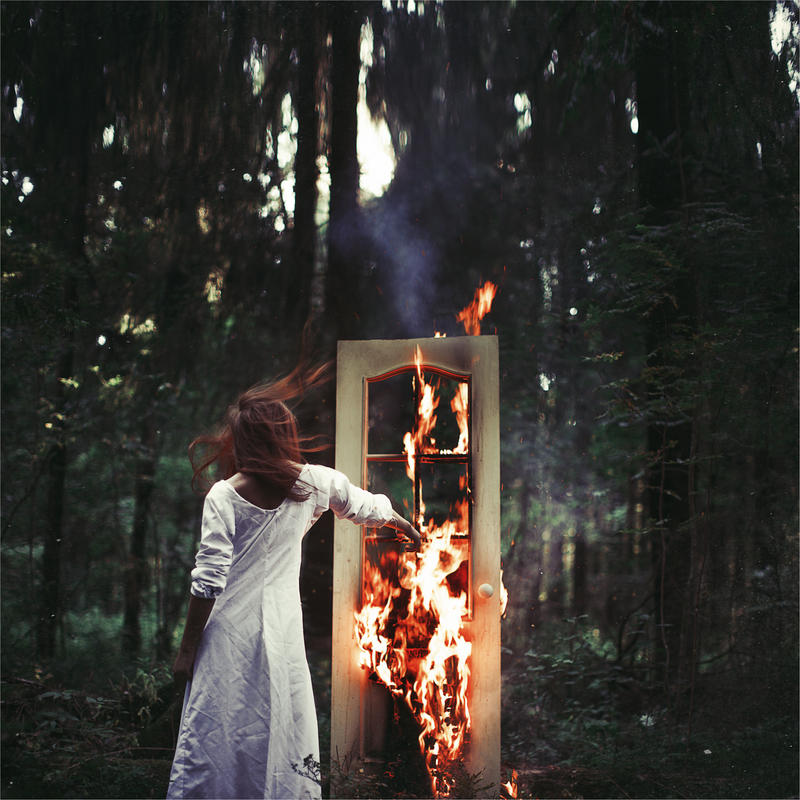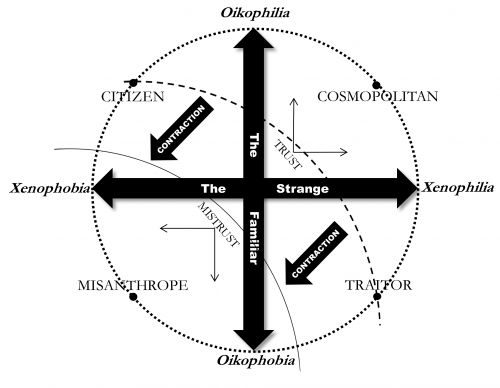Post by pjotr on Nov 24, 2017 1:04:22 GMT 1
jagahost.proboards.com/thread/20895/oikophobe?page=1&scrollTo=107351
Oikophobia

I sometimes wonder how Poles position themselves in Europe, in the world and in the Slavic world?
Are most Poles Patriots, Nationalists and conservatives, or do you also have a lot of liberals, liberal socialists, libertarians and anarchistic Poles in the positive peaceful libertarian anarchist version of radical individualists who oppose collectivism, centralism, dogmatic, doctrinary and orthodox thinking.
I am 'Vrijzinnig' a Dutch word which is extremely difficult to translate in another language. A free thinking liberal comes close to the description, but the refined and subtle meaning of the Dutch word is hard to grasp.
Do you have and do you know Polish Oikophobes?
In psychiatry, oikophobia (synonymous with domatophobia and ecophobia) is an aversion to home surroundings. It can also be used more generally to mean an abnormal fear (a phobia) of the home, or of the contents of a house ("fear of household appliances, equipment, bathtubs, household chemicals, and other common objects in the home"). The term derives from the Greek words oikos, meaning household, house, or family, and phobia, meaning "fear".
In 1808 the poet and essayist Robert Southey used the word to describe a desire (particularly by the English) to leave home and travel. Southey's usage as a synonym for wanderlust was picked up by other nineteenth century writers.
The term has also been used in political contexts to refer critically to political ideologies that repudiate one's own culture and laud others. The first such usage was by Roger Scruton in a 2004 book.

Part of my Oikophobia is that I am allergic to Dutch sentimentalism, folk art and music, the so called Dutch cosyness (gezelligheid), Dutch nationalism, Dutch superiority feelings (with elements in the colonial era, economical and financial power, Calvinist Exceptionalism, Dutch arrogance and the mentality of many Dutch people. (To present, to loud, to dominant and to self aware). (P.S.- Other European and North-American peoples have these superiority feelings too, like for instance the notion that the USA is the best nation, the best democracy and has the best culture-)
In contrast with that I love German, British, French and Polish culture, the German, British English, French and Polish languages. Dutch for me is only a pragmatic, work tool to communicate with family, friends, colleagues, neighbours and comopatriots I met on the street or in other parts of the country.
My Dutch Patriotism has nothing to do with a romantic sentimental notion of Dutchness, nothing with nostalgia and nothing with Dutch nationalism. I reject the sentimental and nostalgic link Nationalist have with their nation and in their ideas that in the past, when the nation was still ethnic and cultural pure, the Netherlands was somehow a better nation.
They ignore facts of reality in the past. That there was more inequality, that there was the pollarization of pillarization (the Calvinist, Roman-Catholic, Socialist and General -liberal/secular- pillars). For instance I am a Dutch Roman-Catholic, but I am more rooted in the secular-liberal and social-democratic pillar politically, socially and culturally than in the conservative -reactionary- Roman-Catholic pillar of the past.
In present day Poland I would probably be a leftwing socialist (Unia Pracy), a Polish marxist (in the PPS sense) or a secular liberal (.Nowoczesna).
Cheers,
Pieter
Oikophobia

I sometimes wonder how Poles position themselves in Europe, in the world and in the Slavic world?
Are most Poles Patriots, Nationalists and conservatives, or do you also have a lot of liberals, liberal socialists, libertarians and anarchistic Poles in the positive peaceful libertarian anarchist version of radical individualists who oppose collectivism, centralism, dogmatic, doctrinary and orthodox thinking.
I am 'Vrijzinnig' a Dutch word which is extremely difficult to translate in another language. A free thinking liberal comes close to the description, but the refined and subtle meaning of the Dutch word is hard to grasp.
Do you have and do you know Polish Oikophobes?
In psychiatry, oikophobia (synonymous with domatophobia and ecophobia) is an aversion to home surroundings. It can also be used more generally to mean an abnormal fear (a phobia) of the home, or of the contents of a house ("fear of household appliances, equipment, bathtubs, household chemicals, and other common objects in the home"). The term derives from the Greek words oikos, meaning household, house, or family, and phobia, meaning "fear".
In 1808 the poet and essayist Robert Southey used the word to describe a desire (particularly by the English) to leave home and travel. Southey's usage as a synonym for wanderlust was picked up by other nineteenth century writers.
The term has also been used in political contexts to refer critically to political ideologies that repudiate one's own culture and laud others. The first such usage was by Roger Scruton in a 2004 book.

Part of my Oikophobia is that I am allergic to Dutch sentimentalism, folk art and music, the so called Dutch cosyness (gezelligheid), Dutch nationalism, Dutch superiority feelings (with elements in the colonial era, economical and financial power, Calvinist Exceptionalism, Dutch arrogance and the mentality of many Dutch people. (To present, to loud, to dominant and to self aware). (P.S.- Other European and North-American peoples have these superiority feelings too, like for instance the notion that the USA is the best nation, the best democracy and has the best culture-)
In contrast with that I love German, British, French and Polish culture, the German, British English, French and Polish languages. Dutch for me is only a pragmatic, work tool to communicate with family, friends, colleagues, neighbours and comopatriots I met on the street or in other parts of the country.
My Dutch Patriotism has nothing to do with a romantic sentimental notion of Dutchness, nothing with nostalgia and nothing with Dutch nationalism. I reject the sentimental and nostalgic link Nationalist have with their nation and in their ideas that in the past, when the nation was still ethnic and cultural pure, the Netherlands was somehow a better nation.
They ignore facts of reality in the past. That there was more inequality, that there was the pollarization of pillarization (the Calvinist, Roman-Catholic, Socialist and General -liberal/secular- pillars). For instance I am a Dutch Roman-Catholic, but I am more rooted in the secular-liberal and social-democratic pillar politically, socially and culturally than in the conservative -reactionary- Roman-Catholic pillar of the past.
In present day Poland I would probably be a leftwing socialist (Unia Pracy), a Polish marxist (in the PPS sense) or a secular liberal (.Nowoczesna).
Cheers,
Pieter








